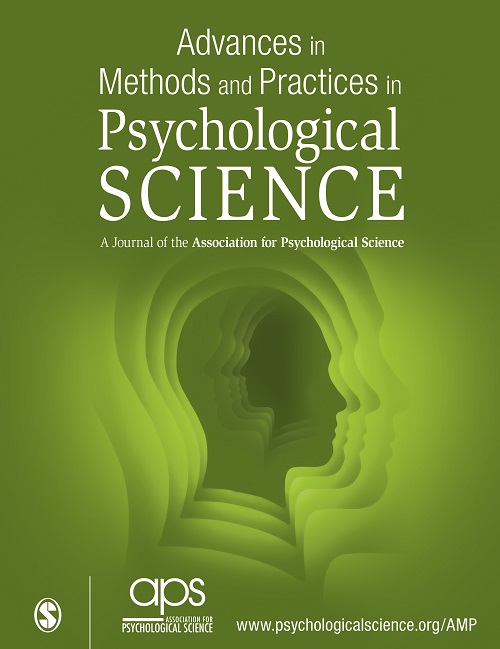Your Coefficient Alpha Is Probably Wrong, but Which Coefficient Omega Is Right? A Tutorial on Using R to Obtain Better Reliability Estimates
IF 13.4
1区 心理学
Q1 PSYCHOLOGY
Advances in Methods and Practices in Psychological Science
Pub Date : 2020-11-06
DOI:10.1177/2515245920951747
引用次数: 163
Abstract
Measurement quality has recently been highlighted as an important concern for advancing a cumulative psychological science. An implication is that researchers should move beyond mechanistically reporting coefficient alpha toward more carefully assessing the internal structure and reliability of multi-item scales. Yet a researcher may be discouraged upon discovering that a prominent alternative to alpha, namely, coefficient omega, can be calculated in a variety of ways. In this Tutorial, I alleviate this potential confusion by describing alternative forms of omega and providing guidelines for choosing an appropriate omega estimate pertaining to the measurement of a target construct represented with a confirmatory factor analysis model. Several applied examples demonstrate how to compute different forms of omega in R.你的系数可能是错的,但哪个系数是对的呢?关于使用R获得更好的可靠性估计的教程
测量质量最近被强调为一个重要的关注,以推进累积心理科学。这意味着研究人员应该超越机械地报告系数,更仔细地评估多项目量表的内部结构和可靠性。然而,当研究人员发现可以用多种方法计算alpha的显著替代值,即系数omega时,可能会感到气馁。在本教程中,我将通过描述omega的替代形式,并提供指导原则,以选择与用验证性因子分析模型表示的目标结构的测量相关的适当omega估计,从而减轻这种潜在的混淆。几个应用实例演示了如何计算R中不同形式的。
本文章由计算机程序翻译,如有差异,请以英文原文为准。
求助全文
约1分钟内获得全文
求助全文
来源期刊
CiteScore
21.20
自引率
0.70%
发文量
16
期刊介绍:
In 2021, Advances in Methods and Practices in Psychological Science will undergo a transition to become an open access journal. This journal focuses on publishing innovative developments in research methods, practices, and conduct within the field of psychological science. It embraces a wide range of areas and topics and encourages the integration of methodological and analytical questions.
The aim of AMPPS is to bring the latest methodological advances to researchers from various disciplines, even those who are not methodological experts. Therefore, the journal seeks submissions that are accessible to readers with different research interests and that represent the diverse research trends within the field of psychological science.
The types of content that AMPPS welcomes include articles that communicate advancements in methods, practices, and metascience, as well as empirical scientific best practices. Additionally, tutorials, commentaries, and simulation studies on new techniques and research tools are encouraged. The journal also aims to publish papers that bring advances from specialized subfields to a broader audience. Lastly, AMPPS accepts Registered Replication Reports, which focus on replicating important findings from previously published studies.
Overall, the transition of Advances in Methods and Practices in Psychological Science to an open access journal aims to increase accessibility and promote the dissemination of new developments in research methods and practices within the field of psychological science.

 求助内容:
求助内容: 应助结果提醒方式:
应助结果提醒方式:


